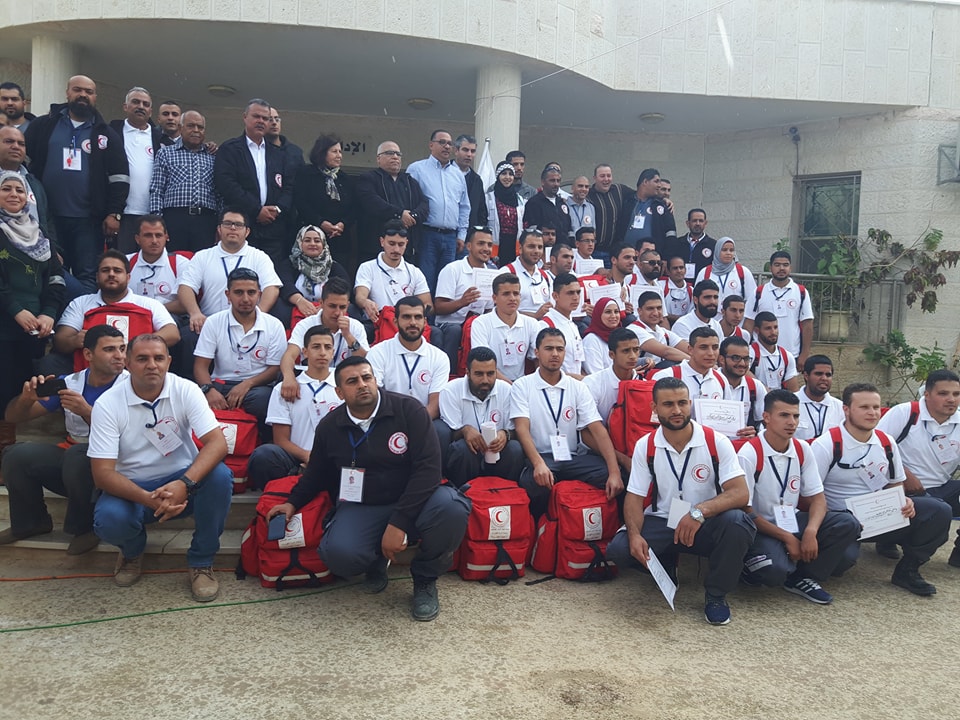
(Jericho - 22/11/2017): PRCS concluded today its Eighth National Disaster Response Camp. Approximately 45 volunteers from the West Bank took part in this nine-day Camp held in Jericho Governorate. The Camp’s closing ceremony was attended by Dr. Khaled Joudeh, PRCS’ Director General, Mr. Hassan Al Rjoub, Deputy Governor of Jericho, as well as by many PRCS’ branch and program directors and representatives from official and grassroots organizations in the city.
In his address, Dr. Joudeh said this Camp and the seven previous ones constitute a key part of the Society’s Strategy which aims at developing the skills and enhancing the efficiency of PRCS’ staff and volunteers so they can better serve their communities and face both occupation-made and natural disasters. “This Camp is in line with both the Society’s Strategy and the National Crisis Response Strategy which call for the creation of a well-trained team of volunteers capable of responding to potential crises and disasters and of shouldering responsibilities and working under pressure with a view to alleviating human suffering, especially in Palestine. The Society’s Disaster Response Team has already taken part in many humanitarian missions both regionally and around the globe. Most recently, it participated in the Palestinian National Intervention and Response Team which headed to the Caribbean to assist those affected by hurricane Irma”, he said.
The Deputy Governor of Jericho and Northern Aghwar commended PRCS for the services it offers to Palestinians everywhere. He lauded efforts made by late Dr. Fathi Arafat who worked hard to build the Society ever since 1968 and wished all the best to PRCS.
Camp participants received both theoretical and practical training in the following fields: water and sanitation, camp planning and management, Sphere standards, public health during emergencies, communicable diseases, rapid assessment, Operations Room management, safe access, First Aid, field teams, disaster response tools, social diversity, community resilience, mental health, information and communications during emergencies, and rehabilitation. A situation analysis of disability in Palestine and of the needs and obstacles faced by disabled persons was presented, while a Civil Defense Module focused on rescue and evacuation efforts.
Diplomas were handed to participants at the end of the course.
End.